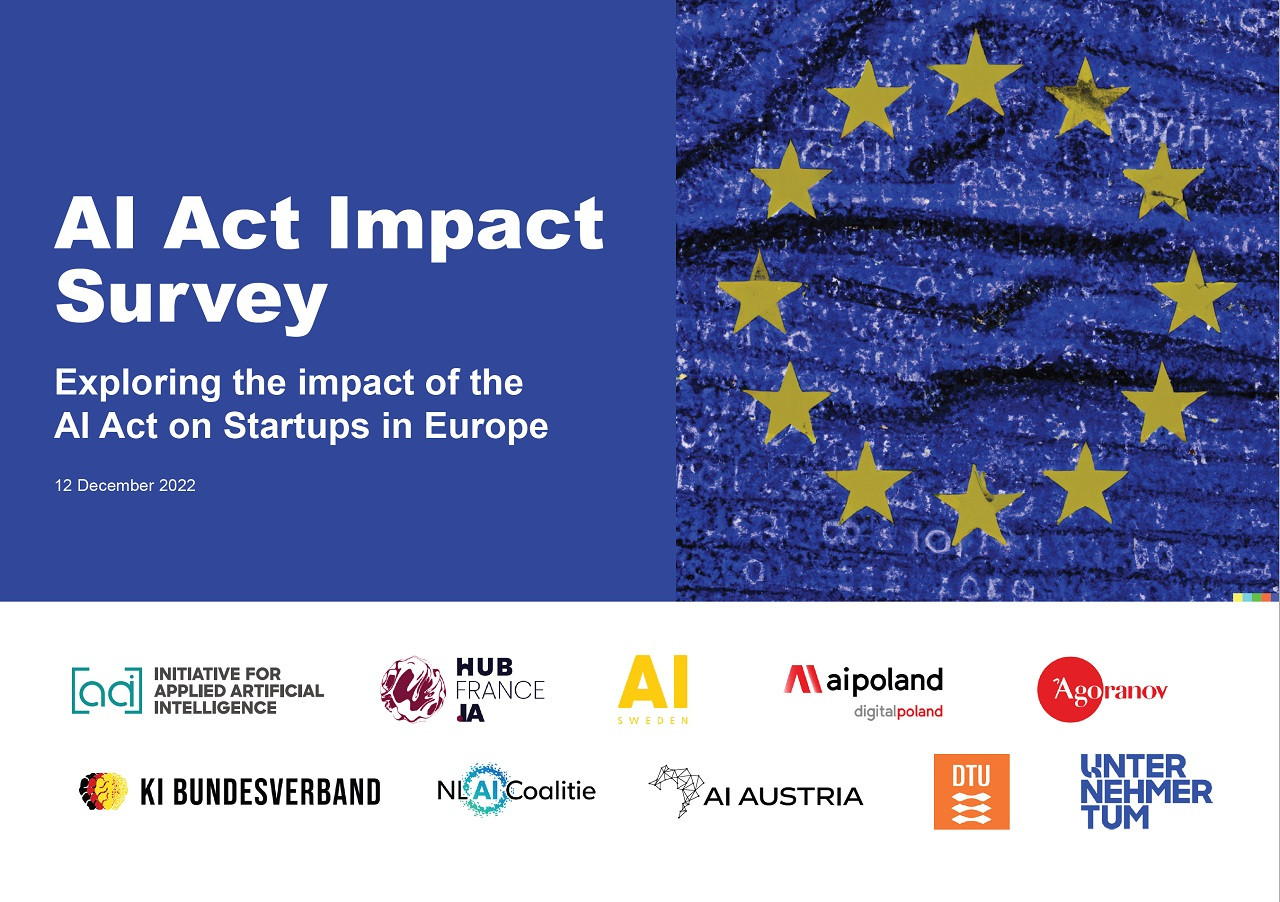Our website is using cookies to deliver best possible experience to you. By using it you agree to cookies policy.
Leading European AI organisations have studied the impact of the upcoming Artificial Intelligence Act (AI Act) on the European startup market. 50% of AI startups believe that the upcoming act will slow down AI innovation in Europe. An additional 16% are considering stopping AI development or moving outside the EU. This is just one of the key findings of the report.

The Council of the European Union has approved a common position on the Artificial Intelligence Act (the so-called AI Act). The new regulation is intended to ensure that AI introduced into the common market and used in the Union is safe and complies with existing fundamental rights law and EU values. Representatives of the European AI ecosystem are concerned that the new regulation will significantly limit innovation in Europe. To test the expected impact of the upcoming regulation, the Digital Poland Foundation, together with 9 European partners, conducted a survey among 113 European AI startups and VC funds focusing their investments on the artificial intelligence market.
Key findings:
73% of VCs surveyed expect the AI act to reduce or significantly reduce the competitiveness of European AI startups.
33% - 50% would classify AI systems as High-Risk, which is well beyond the assumptions in the so-called Policy Impact Assessment by the European Commission (5-15%).
45% would consider their solution as general purpose AI.
50% of AI startups believe that the so-called AI Act will slow down AI innovation in Europe. 16% are considering stopping AI development or moving outside the EU.
For high-risk AI systems, additional requirements and obligations pose significant challenges for startups in terms of technical and organisational complexity and compliance costs (so-called compliance).
VC funds will reduce investment in complex AI systems in Europe, focusing on simpler AI applications.
- The survey confirms the opinion of the Polish AI ecosystem on the upcoming Artificial Intelligence Act. The regulation is not fine-tuned, the definitions contained in it are not precise and often downright confusing, the work of OECD experts has not been taken into account, and a number of new obligations will significantly hinder the development of artificial intelligence in Europe, says Piotr Mieczkowski, managing director of the Digital Poland Foundation.
Feedback from SMEs, as well as larger European European companies, points to similar challenges. Countries with large companies, such as the US, UK, China and Israel, are supporting their AI ecosystems so that they can thrive in the global race for leadership. European startups, on the other hand, will face additional costs, slower innovation and lower valuations and VC/PE investment. The lower regulatory burden for SMEs proposed in the act will not help, as startups wishing to grow must immediately consider compliance with all regulations. Otherwise, they will be forced to redo a fair amount of R&D work from scratch, especially if they cross a certain threshold. There are several options to reduce the impact on the startup and innovation ecosystem in Europe. Each of these can and should be addressed in order for Europe to remain competitive in the global race for AI leadership. These are briefly outlined in the report.
---
More about the study
The survey was conducted in November 2022 and involved 113 stakeholders from Austria, France, the Netherlands, Germany, Poland and Sweden. The survey was initiated by appliedAI Initiative Gmbh. The survey was carried out in cooperation with entrepreneurship centres: DTU Skylab (Denmark), Agoranov (France), UnternehmerTUM GmbH (Germany) and the leading AI support organisations in Europe - AI Austria (Austria), Hub France AI (France), NL AI Coalitie (Netherlands), KI-Bundesverband (Germany), Digital Poland Foundation (Poland) and AI Sweden (Sweden). The questionnaire is attached as an appendix to the report. The report in English is available for download from the foundation's website and the websites of the study partners.